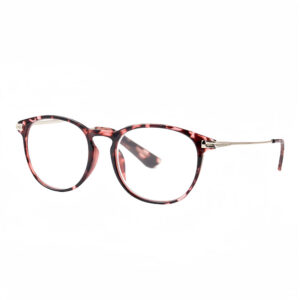
Great things in business are never done by one person. They’re done by a team of people. We have that dynamic group of peoples
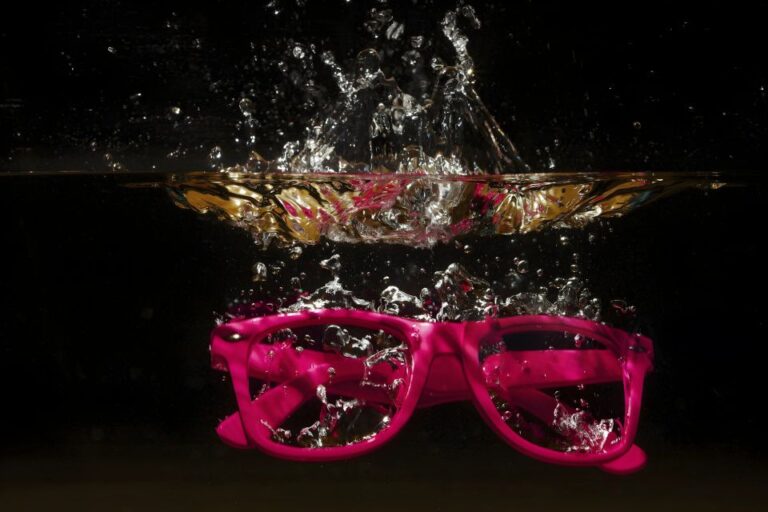
Imagine you’re out on a boat, enjoying the sun’s warm rays, and suddenly, your eyeglasses slip off and plunge into the water. Most traditional sunglasses and eyeglasses are made from materials like metal and dense plastic, causing them to sink immediately.
Density Matters: Objects sink or float based on their density relative to water. Materials with a density higher than water will sink.
Common Materials: Typical eyewear materials aren’t buoyant. The glass lenses and metal or plastic frames are too heavy to float.
For those who love watersports, losing your eyewear can be a frequent and frustrating experience.
Most sunglasses sink when dropped into water because:
Weight of Materials: The lenses and frames are made of heavy substances.
Lack of Buoyancy: There’s no design consideration for floating.
However, floating sunglasses are specifically designed to float. They use materials and designs that keep them on the water’s surface.
Lightweight Frames: Made from lightweight, floatable materials.
Buoyant Design: Crafted to have a density lower than water.
Floating sunglasses are often made from:
Specially Formulated Injection Molded Resin: This resin with a density lower than water ensures buoyancy.
Bamboo Frames: Bamboo is a lightweight and durable material that floats.
Hollow Frames: Reduces overall weight.
Air Chambers: Tiny pockets of air within the frames increase buoyancy.
Hydrophobic Coatings: Repels water, preventing the sunglasses from becoming waterlogged.
Quote: “The secret to floating eyewear lies in merging innovative materials with smart design.” – Eyewear Engineer at Dragon Alliance
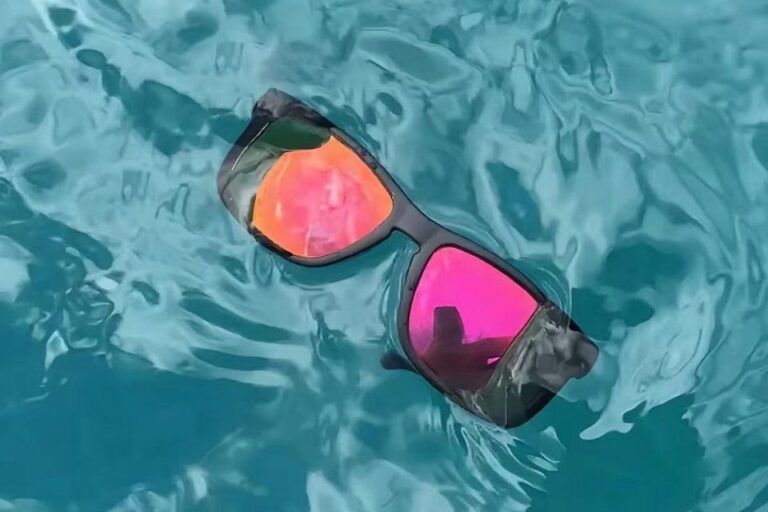
Losing sunglasses can be costly, especially if you prefer high-quality or polarized sunglasses. With floating eyewear, if they fall overboard, they’re not lost.
For enthusiasts of:
Kayaking
Surfing
Paddle Boarding
Rafting
Having sunglasses that float means you can focus on the fun without worrying about your eyewear.
Floating sunglasses still offer:
UV Protection: Shields your eyes from the sun’s harmful UV rays.
Glare Reduction: Especially if they have polarized lenses, reducing the sun’s glare off the water.
Specially Formulated Plastics: Materials like injection molded resin have molecules arranged to create a density lower than water.
Bamboo and Wood: Naturally buoyant materials used in some frames.
Wider Temples: Adds buoyancy and balance.
Lightweight Construction: Every component, from the lenses to the temples, is optimized for minimal weight.
Hydrophobic Coating: Repels water, keeping the sunglasses light.
Scratch-Resistant Coating: Ensures durability for years to come.

Polarized sunglasses cut down on glare from the sun reflecting off the water, providing clearer vision.
Better Clarity: Enhances visibility in bright conditions.
Eye Comfort: Reduces eye strain during prolonged exposure.
In activities like:
Boating
Kite Surfing
Jet Skiing
Clear vision is crucial for safety. Polarized lenses help you see obstacles and other people more clearly.
By merging the benefits of floating frames and polarized lenses, you get:
Maximum Protection: Against the sun and water-related accidents.
Convenience: If they fall off, they’ll float until you retrieve them.
Durability: Built to withstand active lifestyles.
Material Quality
Look for lightweight and durable materials.
Consider frames made from specially formulated plastics or bamboo.
Lens Technology
UV Protection: Essential for safeguarding your eyes.
Polarization: Reduces glare, enhances clarity.
Comfort and Fit
Ensure they fit great and stay secure during activities.
Adjustable features can enhance comfort.
Style and Appearance
Choose a design that suits your personal style.
Brands like Dragon Alliance offer fashionable options.
Impact-Resistant Frames: Built to withstand drops and knocks.
Scratch-Resistant Lenses: Ensures clear vision over time.
Comfortable Wear: Less strain on your nose and ears.
Enhanced Performance: Lightweight frames stay in place during vigorous activities.
Example: Sunglasses constructed from a specially formulated resin are both buoyant and durable, offering the best of both worlds.
High-Quality Lenses: Provide sharp and clear vision.
Prescription Lenses Available: Some brands offer prescription lenses in their floating model
UV Coating: Blocks harmful UV rays.
Hydrophobic Coating: Keeps lenses clear by repelling water.
Floatable Straps: Adds extra security.
Adjustable Fit: Keeps your eyeglasses snug during activity.
Floating Cases: Ensure your sunglasses stay afloat even when stored.
Durable Materials: Protects against scratches and impacts.
Prevent Lost Sunglasses: By not sinking, they don’t contribute to underwater litter.
Eco-Friendly Materials: Some brands use sustainable materials like bamboo.
Durability Means Less Waste: Sunglasses designed to last reduce the need for frequent replacements.
Yes, they are designed to be comfortable and fit great, just like regular sunglasses.
Absolutely! Many brands offer floating sunglasses in sizes suitable for children.
Many sellers offer prescription lenses options in floating frames.
Feature Floating Sunglasses Regular Sunglasses Buoyancy Yes, they float in water No, they sink Materials Lightweight, low-density, buoyant Heavier plastics or metals Durability Built for watersports, highly durable Varies, but generally less robust UV Protection Yes, often with enhanced coatings Yes, standard UV protection Polarized Lenses Common, ideal for reducing glare Available, but not always standard Environmental Impact Eco-friendly options available Potential underwater litter if lost Style Options Wide range, including sporty and casual Wide range, varies by brand Price Range Moderate to premium Budget to premium.
If you’re an outdoor enthusiast or just someone who enjoys spending time near water, floating sunglasses are a valuable accessory. They combine practicality with style, ensuring you protect your eyes without the risk of losing your shades to the depths.
Eyeglasses and traditional sunglasses usually sink due to higher density than water.
Floating sunglasses are designed with materials of density lower than water to float if dropped.
Incorporate lightweight and durable materials like specially formulated resin or bamboo.
Polarized sunglasses reduce the sun’s glare, providing better clarity and reducing eye strain.
UV protection in lenses safeguards against the sun’s harmful UV rays, preventing long-term eye damage.
Brands like Dragon Alliance and Blender offer stylish and functional floating eyewear.
Floating polarized sunglasses offer both buoyancy and enhanced vision, ideal for watersports.
Hydrophobic coatings and scratch-resistant lenses add to the durability and longevity of the sunglasses.
Investing in floating sunglasses is worth it for anyone involved in water activities to avoid losing their eyewear.
Environmental benefits include reducing underwater pollution by preventing lost sunglasses.
Remember: Next time you’re planning a day of water sports or a relaxing trip on a boat, consider investing in a pair of floating sunglasses. They’ll keep your eyes protected and stay afloat, ensuring you enjoy your adventure without any worries.
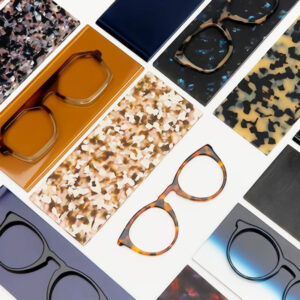
Acetate has emerged as one of the most popular materials for eyeglass frames in recent years.

Scratched glasses make it difficult to see clearly, which can be a real headache! But don’t worry! This guide is to help you learn how to remove scratches from eyeglasses effortlessly. You’ll learn easy ways to remove scratches from lenses and keep new scratches from forming. So let’s get into it and polish those glasses up!
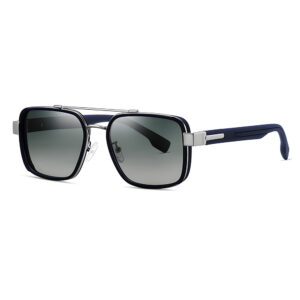
Home WhatsApp Email Blue Light Glasses, Eyeglasses Custom Women's Blue Light Glasses, Wholesale Womens Blue Light Glasses, Women's Blue Light
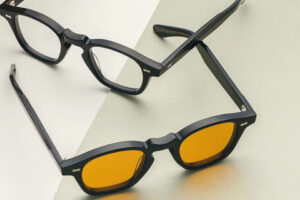
Ever tried squinting in bright light or felt uncomfortable in abundance of shining sunshine? If so, you’re not alone. It’s not uncommon — many people are sensitive to light, more than you might think. This article brings you to the intersection of specific glasses for light sensitivity and a better lifestyle. So we will learn whether these glasses really work and how they can help us to see a better view and feel comfortable.
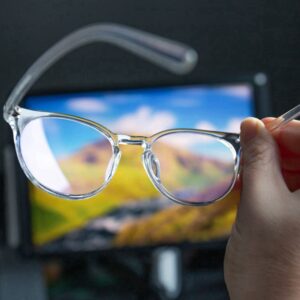
Modern life utilizes screens for nearly everything; in today’s world, screens are everywhere. In an age of smartphone, computer, and tablet usage, this is why so many people are seeking to buy blue light glasses. But do blue light glasses actually work, or are they potentially doing more harm than good? In this article, we will explore the blue light blocking glasses’ negative side and how they could be harmful and what to be aware of before you plan to wear blue light glasses all day. Learn why there are some surprising truths about these familiar styles of glasses.
Didn’t find what you want? Ask our manager for help!
Didn’t find what you want? Ask our manager for help!